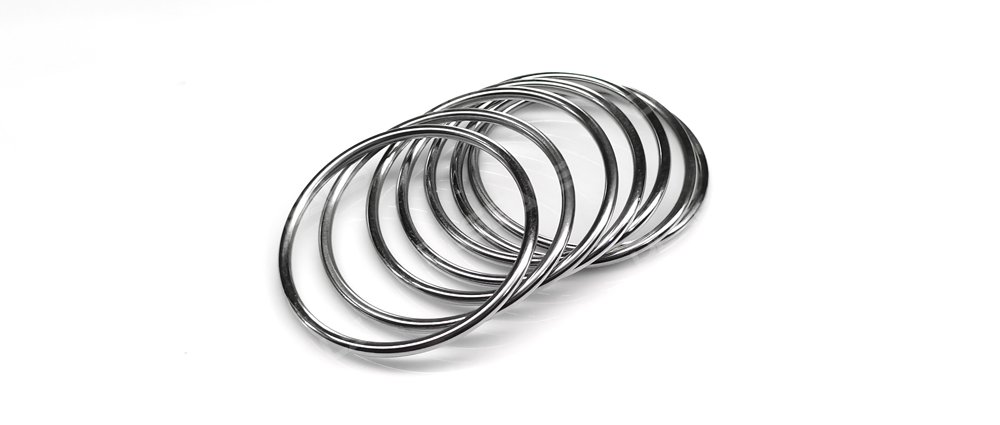News
A2024-08-26

Introduction
Metal seals are widely used in various industrial fields, such as petrochemical, aerospace, and automobile manufacturing. In different working environments, choosing the right metal seal is crucial to ensure the sealing performance and reliability of the system. This article will explore in depth how to choose the most suitable metal seal according to the working environment.
1. Understand the characteristics of the working environment
Before choosing a metal seal, you first need to fully understand the specific characteristics of the working environment, including factors such as temperature, pressure, medium, and environmental corrosiveness. Only by clarifying these parameters can you effectively choose the right seal.
1.1 Temperature
The temperature range of the working environment is crucial to the material selection of metal seals. In high-temperature environments, high-temperature resistant metal seals, such as stainless steel or titanium alloys, need to be selected; while in low-temperature environments, the low-temperature brittleness of the material needs to be considered, and metals suitable for low-temperature environments, such as aluminum alloys or copper alloys, should be selected.
1.2 Pressure
The pressure that the seal needs to withstand is also an important basis for selection. Metal seals with high strength and high rigidity, such as carbide seals, should be selected in high-pressure environments; for low-pressure environments, metal seals with lower strength requirements can usually be selected.
1.3 Medium
Different working media have different corrosion and erosion effects on metal seals. In corrosive media (such as acid, alkali, and salt solutions), corrosion-resistant metal seals such as highly corrosion-resistant stainless steel or nickel-based alloys are required; for non-corrosive media, ordinary metal materials can be used.
1.4 Environmental Corrosiveness
If the working environment is highly corrosive (such as marine environment or chemical plant), it is particularly important to choose metal seals with high corrosion resistance. Consider using specially treated alloy materials or coating protection to enhance corrosion resistance.
2. Common Types of Metal Seals
Depending on different working environments, the following common types of metal seals can be selected:
2.1 Metal Spiral Seals
Metal spiral seals adopt a spiral structure design and are suitable for high temperature, high pressure and corrosive media environments. Its excellent sealing performance makes it outstanding in many high-demand application scenarios.
2.2 Metal bellows seals
Metal bellows seals have good elasticity and pressure resistance, and are suitable for environments that require compensation for displacement and vibration, such as pipeline systems and vibration equipment.
2.3 Metal ring seals
Metal ring seals are usually used in high temperature and high pressure environments, and their sturdy structure can effectively prevent medium leakage. Widely used in aerospace and high-pressure equipment.
2.4 Metal rubber composite seals
This seal combines the advantages of metal and rubber and is suitable for demanding sealing environments. The metal part provides structural strength, while the rubber part enhances sealing and elasticity.
3. Precautions for selecting metal seals
3.1 Material selection
Make sure that the selected material meets the temperature, pressure and medium requirements of the working environment. For extreme environments, select certified high-performance alloy materials to ensure the long-term stability of the seal.
3.2 Manufacturing quality
The manufacturing quality of metal seals directly affects their service life. Choose seals produced by regular manufacturers and ensure that they have undergone strict quality inspections to avoid sealing failures due to manufacturing defects.
3.3 Installation requirements
The correct installation method is crucial to the sealing effect. During the installation process, the manufacturer's guidelines should be strictly followed to avoid affecting the sealing performance due to improper installation.
Conclusion
Choosing appropriate metal seals according to the working environment is the key to ensuring the normal operation of the system and improving the reliability of the equipment. By deeply understanding the characteristics of the working environment, selecting the appropriate seal type and material, and paying attention to the quality and installation requirements of the seal, the sealing effect can be effectively improved to ensure the long-term stable operation of the system.
[DLSEALS kindly Reminder] Sealing issues? Turn to DLSEALS! As a sealing component manufacturer, we specialize in customizing sealing components, providing a full range of services from design, research and development, production, testing, and more. If you have more information you'd like to know, feel free to contact us directly. DLSEALS's product experts are dedicated to serving you!